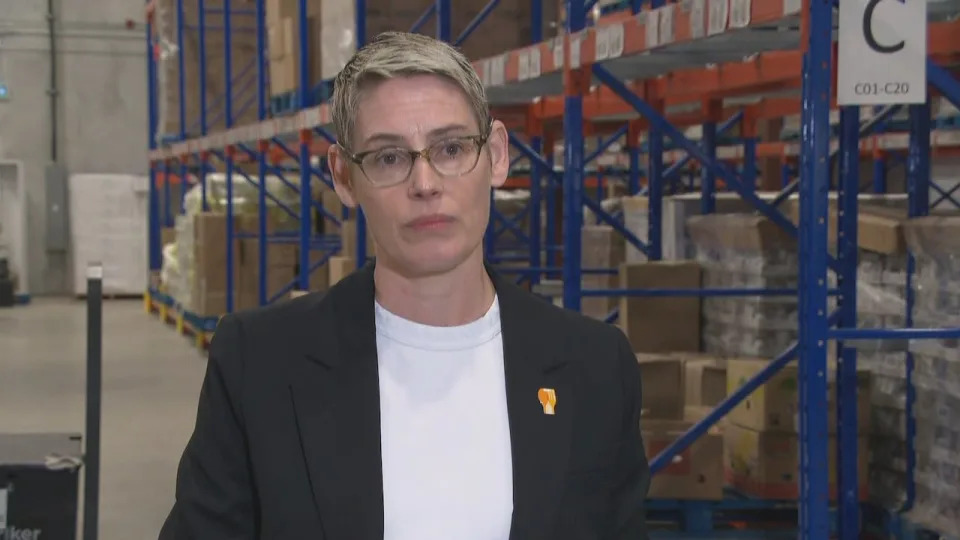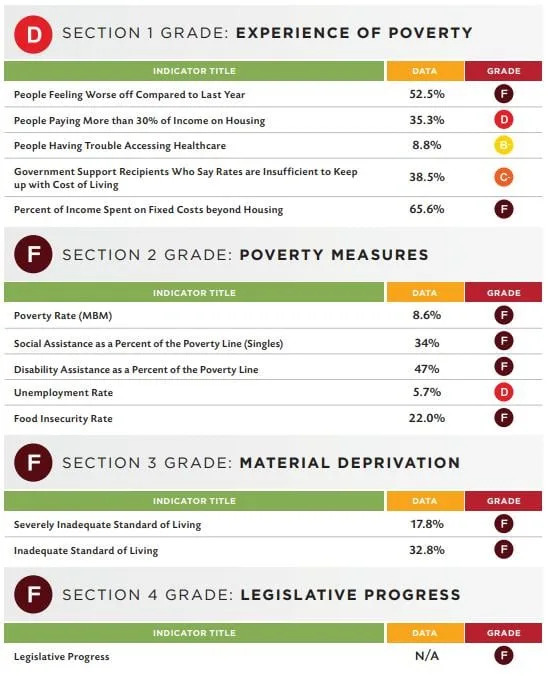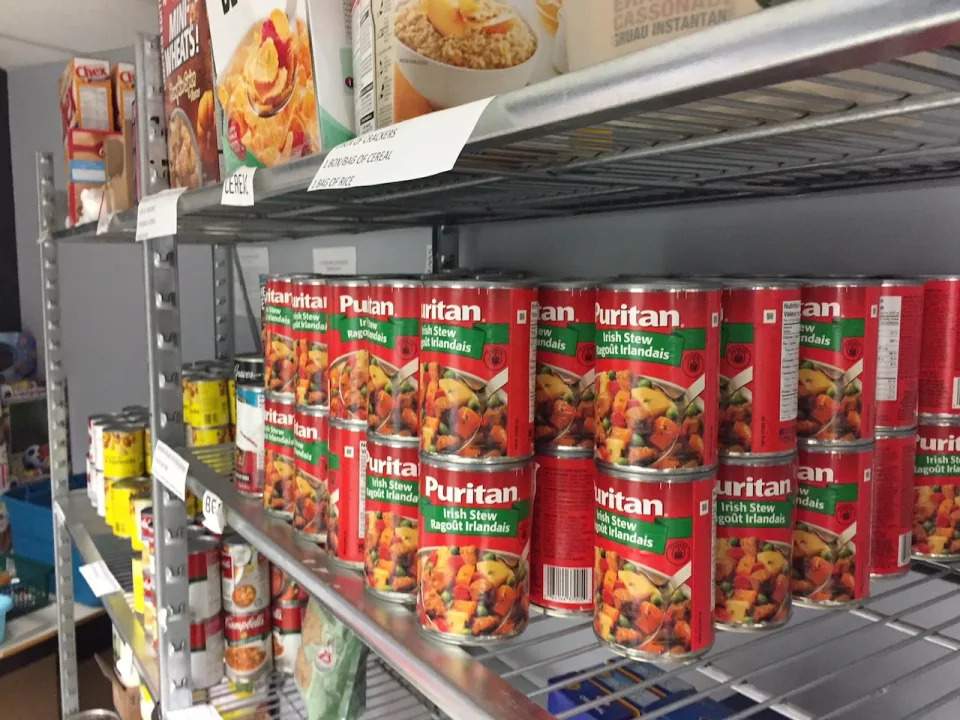CBC
Tue, September 26, 2023

Kirstin Beardsley, CEO of Food Banks Canada, says food bank visits are way up across Canada, which is an early indicator that poverty levels are rising. (CBC - image credit)
Nova Scotia is failing people who are living in poverty, according to a new report from Food Banks Canada.
The report gives a letter grade in 13 indicators of poverty for each Canadian province, plus an overall letter grade.
Nova Scotia received the lowest possible overall grade, F, and it was the only province to score so low.
"It really is a result of a lack of action, a stagnation around any sort of policy advancements to address poverty, to address food insecurity," said Food Banks Canada CEO Kirstin Beardsley.
"When you have a failing grade, you can take some measurable action and see that grade come up. So my message [to Nova Scotia] would be there's a lot of room for improvement."
The report notes that Nova Scotia last wrote a poverty reduction strategy in 2009 and has not updated it since.

Homeless tent encampment Victoria Park and Grand Parade central Halifax.
The report calls Nova Scotia's work on homelessness "unclear and insufficient." (Robert Short/CBC)
Beardsley said the report is a call to action for the federal, provincial and territorial governments to step up and meet the needs of its most vulnerable citizens.
Poverty rates dropped across Canada between the last two census years. Between 2015 and 2020, the national poverty rate went down 6.4 per cent, while the rate in Nova Scotia went down 7.8 per cent. But Beardsley said that doesn't paint an accurate picture of what's happening now.
'We need action now'
She said food bank visits have recently "skyrocketed," which is a canary in the coal mine.
"We see people at the door of a food bank before they show up in federal statistics," Beardsley said.
"We need action now so that people aren't having to go to a food bank to make ends meet."
Food Banks Canada, which is a national non-profit affiliated with Feed Nova Scotia, based its report on data collected from a national survey, coupled with Statistics Canada data on poverty rates.
According to the report, more than half of Nova Scotians feel worse off compared to last year and almost a quarter are experiencing food insecurity.

Nova Scotia's report card from Food Banks Canada on poverty reduction.
Nova Scotia's report card from Food Banks Canada on poverty reduction. (Food Banks Canada)
The report authors call out the Nova Scotia government for "unclear and insufficient" efforts to help people who are homeless and increase the supply of affordable housing.
This year's provincial budget, they said, falls short, with no increase to income assistance rates.
Some gains
The authors said Nova Scotia made some gains this year, including increasing the minimum wage, extending the rent cap and increasing the Nova Scotia Child Benefit.
But overall, the province "failed to take substantive steps this year to meaningfully address poverty," the report said.

The food bank at Mount Saint Vincent University is called the Wellness Pantry and is part of the student union's Wellness Centre.
Food Banks Canada says this new report is part of an effort to reduce food bank use by addressing its root causes. (David Burke/CBC)
Recommendations
Food Banks Canada concluded with seven policy recommendations for the province:
Introduce a new poverty reduction strategy, focusing in particular on poverty among seniors.
Improve community-based health care for seniors.
Remove co-payments for provincial pharmacare programs.
Introduce tax indexation, indexing income brackets to inflation.
Increase and amend the poverty reduction strategy.
Reduce the "claw-backs" of the Nova Scotia affordable living tax credit.
Expand broadband infrastructure.
No comments:
Post a Comment